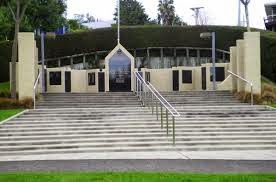[For those who don’t know, Seth Godin is a marketing guru who writes short but thought-provoking blog posts.]
Dear Seth Godin
I probably should have written this post before now. It’s my response to a post about how you learned the clarinet for eight years, but you never actually played it—well, not the way it could be played. You said we often opt for more instead of better, where we should focus on better.
I agree. We should work towards better, not more.
But not always. We live in an individualistic culture, and it’s easy to forget that we’re not all called to be an individual, to work in a vacuum. Sometimes we’re called to be part of a team, to be part of a group where the sum of the whole is more than the sum of the parts.
Sometimes we're called to be part of a team. Share on X
I’m a member of the local brass band. We practice together once a week, and we play in public several times a year. Some of our players are outstanding—they’ve been playing for decades, and they practice every day. Others are relatively new to music and bands, but are diligent in attending practice and trying. Many are competent but not outstanding, people who love music and playing, and embrace the opportunity the band provides.
I’m a mediocre player at best, but I still play.
I play because I enjoy it. But mostly I play because if I didn’t, there would be something missing. We’re a small band. Only one person plays each part. No matter how humble I might think my part is, how mediocre I am as a player, the band is better for me being there. It doesn’t matter that I’m not soloist material. My part is important. The band wouldn’t be complete without me. The sum of the whole is more than the sum of the parts.
As I mentioned a couple of weeks ago, we play at the Dawn Service on ANZAC Day, to commemorate the servicemen who died in the battle at Gallipoli in World War One. We play at the Battle of Britain Day service, commemorating all those who died in that epic battle over the skies of England.
We play at the Merchant Seamen’s Memorial Day, commemorating all those who died in while serving on merchant ships, transporting food and vital supplies to the front. And we play at the Battle of Crete Memorial Service, where we commemorate those who gave their lives in defence of Crete in World War Two, an act which has made our soldiers legends in Crete.
We play at community events.
We undertake an annual charity concert, usually in conjunction with a local choir, to raise money for causes as diverse as establishing a local church playgroup and freeing sex slaves in India. We play carols in a local shopping centre at Christmas. We play in the park on a Sunday afternoon, and small children dance to our music. One looks at us in wonder—has she ever seen music performed live before?
Does she even know those sounds on the radio or TV are made by real people playing real instruments?
Every time we play, someone stops to tell us how beautiful it sounds, how much they like our music. We remind them of their father, their brother, their husband, their son, their loved one who played in a brass band or a concert band or an orchestra. We bring back memories of happy times.
So you’re wrong, Seth Godin.
But you’re also right. You said we should focus on the things we care about. And while I might not be an expert brass soloist, I’m a very good brass band member, and I do care. I’m part of a team who work together, and bring people joy.
And for me, that’s more than enough.


